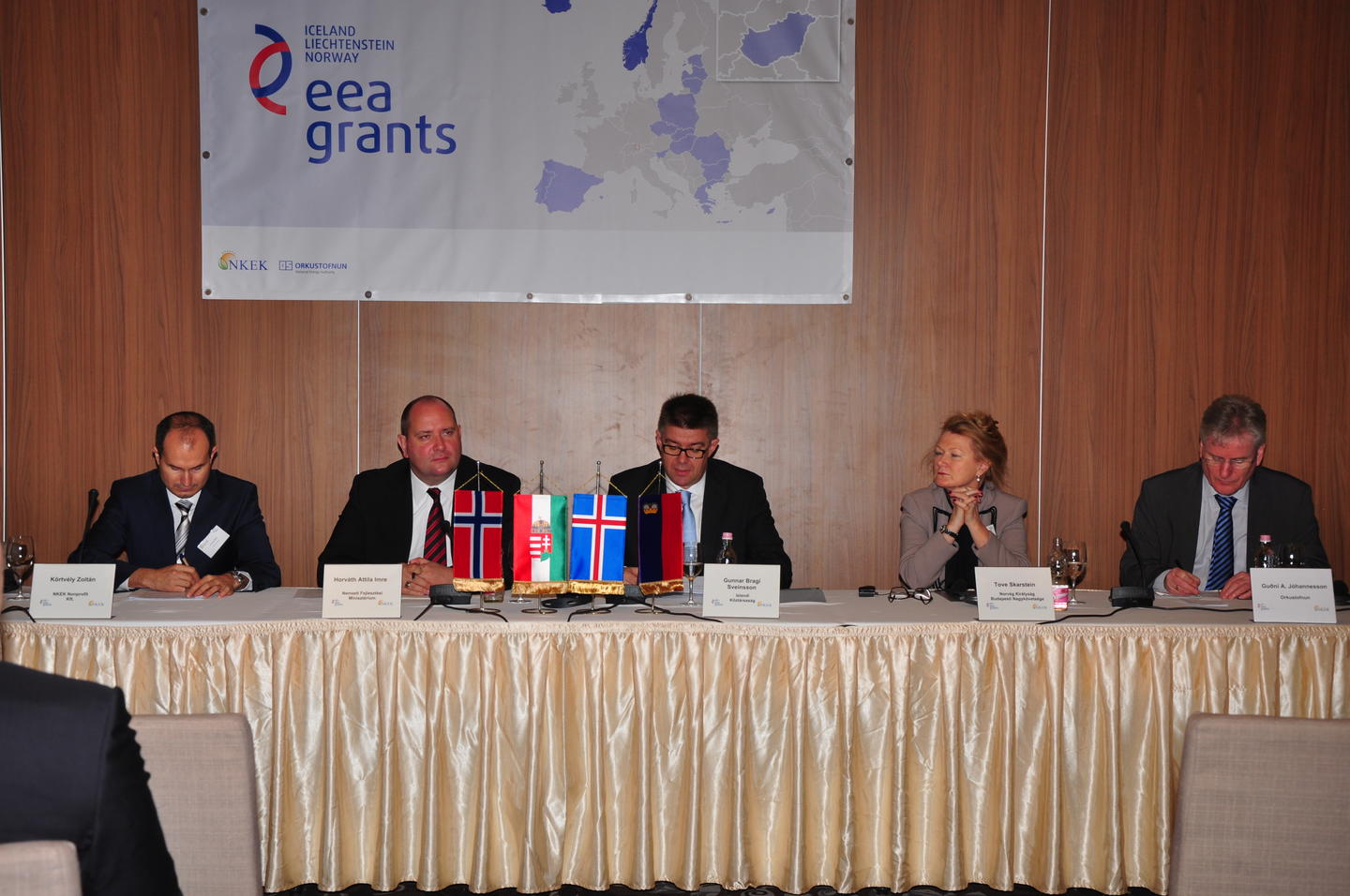Hungary has substantial potential to increase its share of renewable energy, including geothermal energy.
Through the EEA Grants, Iceland, Liechtenstein and Norway, contribute to increase the share of renewable energy in Hungary. The main part of the programme is allocated to projects that will increase the use of geothermal energy for district heating systems in several municipalities throughout Hungary by changing the energy source. Geothermal energy is a form of heat accessible from below the Earth’s surface.
The programme also promotes increased awareness and education on the sustainable use of renewable energy.
Environmental benefits
The renewable energy programme was launched in Budapest 2 December by the Icelandic Foreign Minister Gunnar Bragi Sveinsson and the Hungarian State Secretary for Energy, Attila Imre Horváth. Ambassador of Norway to Hungary, Tove Skarstein, also gave a speech at the launch.
Iceland is big on geothermal energy. About 9 out of 10 households in the country are today heated by this environmentally friendly resource. In his speech, Mr. Sveinsson explained the success Iceland has had in utilising geothermal energy over the last 40 years and the lessons to be drawn from the Icelandic experience. He underlined the environmental benefits, the security of supply and that after initial investments, the prices for consumers remain stable.
“In Europe, the geothermal potential is far from being fully realised and this is certainly the case of Hungary,” said Sveinsson. Iceland has put geothermal energy in the forefront when it comes to bilateral cooperation with the beneficiary countries of the EEA Grants. Funded by the EEA Grants, Hungary as well as Portugal and Romania will work together with the National Energy Authority of Iceland to develop and exploit the potential of geothermal energy.
“I hope that investment by the EEA Grants in geothermal pilot projects will be instrumental in setting an example for European banks, public lending agency and government institutions and anchor geothermal energy as a key renewable energy option,” said Sveinsson.
Here you can find information about two of the project under the Renewable Energy programme:
Utilisation of geothermal heat in the district heating system of Kiskunhalas town
Everybody talks about it - awareness raising campaign for energy efficiency
Sharing experiences from Iceland and Norway
The renewable energy programme will contribute to achieving Hungary’s renewable energy targets, which are part of Hungary’s national energy strategy as well as the county’s commitments towards the EU.
Icelandic competence in the field was demonstrated by the presence at the launch event of several high profile companies that have experience in developing geothermal energy solutions.
Both Icelandic and Norwegian research centers offer their expertise and resources in the field, while Norwegian drilling techniques from the oil industry adapted to geothermal solutions make cooperation with Norwegian companies attractive in areas where the resources are deeper underground.
Through various exchange and scholarship programmes to raise awareness there will be possibilities to participate in shorter or longer study programmes in both Norway and Iceland, not least in the United Nations University – Geothermal Training Programme in Iceland.
Bilateral cooperation is promoted through the Grants, which will earmark a small portion of the funds to cover the costs of study trips between partners in the preparatory phases of their cooperation.
